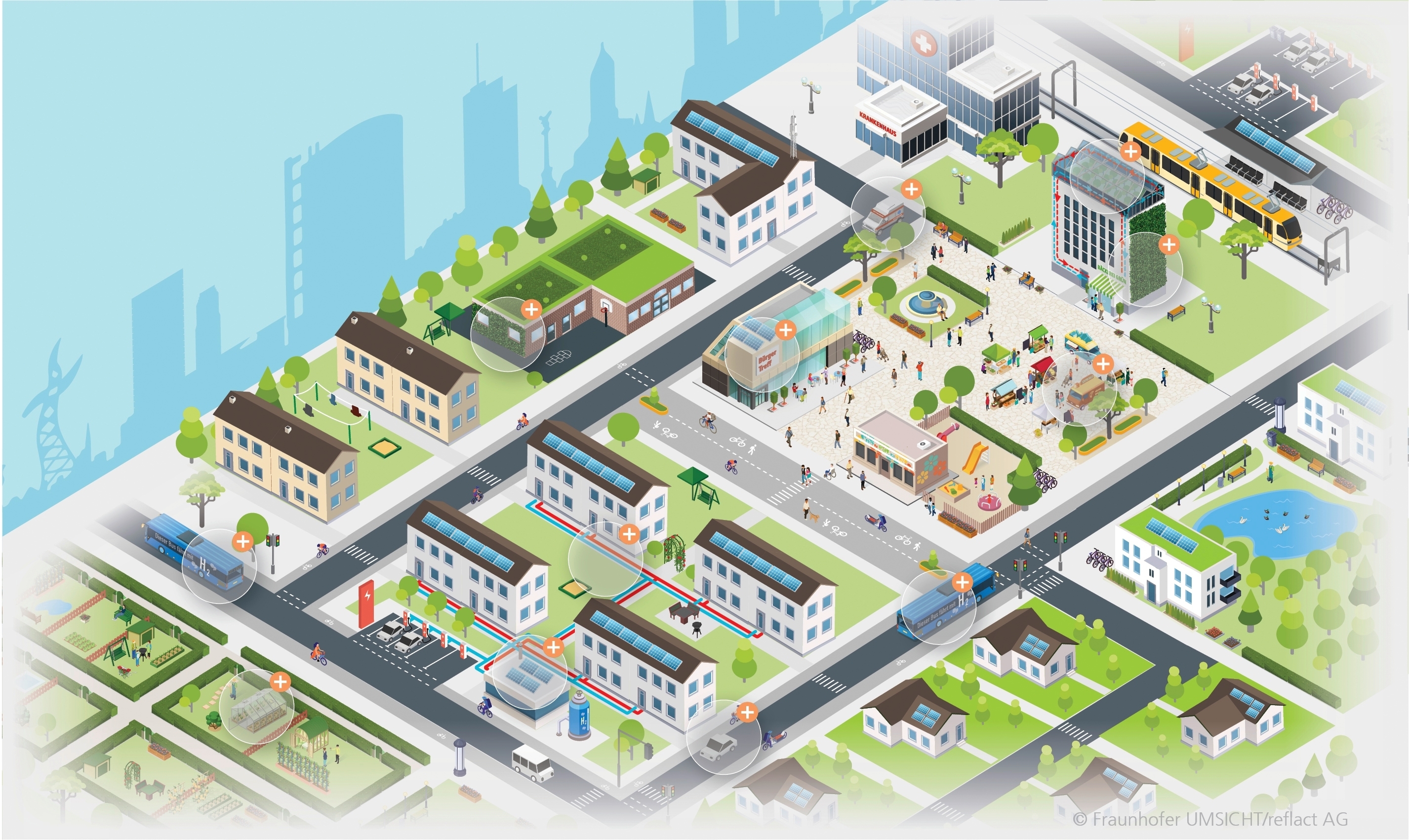Reduction of greenhouse gas emissions in cities
The transformation of society and urban systems is a central task for the coming years. The energy transition and climate change are leading to major challenges even in German cities, especially in the urban districts and in the building sector. In order to achieve the climate protection targets of the German government, greenhouse gas emissions have to decline significantly. A substantially increase in the share of renewable energies in the electricity sector is essential. The necessary shutdown of large‑scale power plants will put local energy systems in corresponding demand. CO2 emissions in the building sector have to decline, the refurbishment rate has to boost, and sustainable mobility concepts are required.
Acceptance by all stakeholders
At the same time, heavy rainfall events and periods of extreme heat are putting a strain on municipal infrastructure and green areas. In some cases, this requires considerable adjustments to the operation and development of infrastructure and network structures, as well as more extensive strategies for adaptation to the new climatic challenges. In addition, the acceptance of all stakeholders – especially the citizens – will have to be taken into account in all projects.
The consideration of neighborhoods as a whole has high importance and becomes repeatedly obvious when making adjustments. In urban areas, a wide variety of functions interlock like in a puzzle: population, energy systems, buildings, traffic, urban green areas and emissions.
Fraunhofer UMSICHT has been working in this field in an interdisciplinary manner for many years. We take the respective local conditions at all levels into account and integrate stakeholders into the processes for developing custom-fit solutions and resilient structures. Our offer to you ranges from the individual concept to the implementation in practice.
 Fraunhofer Institute for Environmental, Safety and Energy Technology UMSICHT
Fraunhofer Institute for Environmental, Safety and Energy Technology UMSICHT
